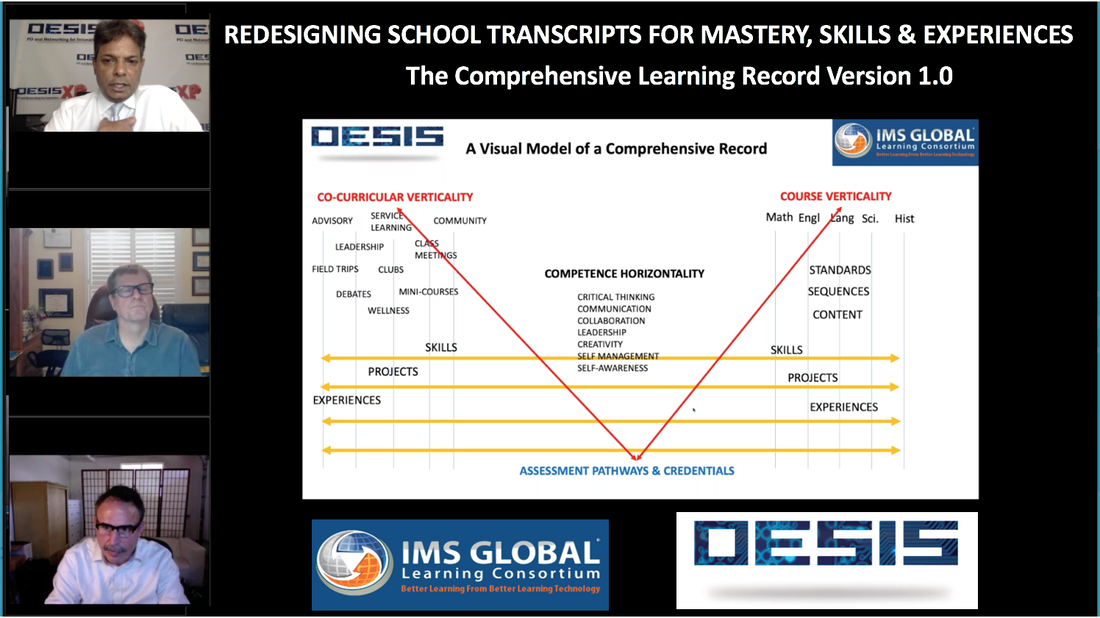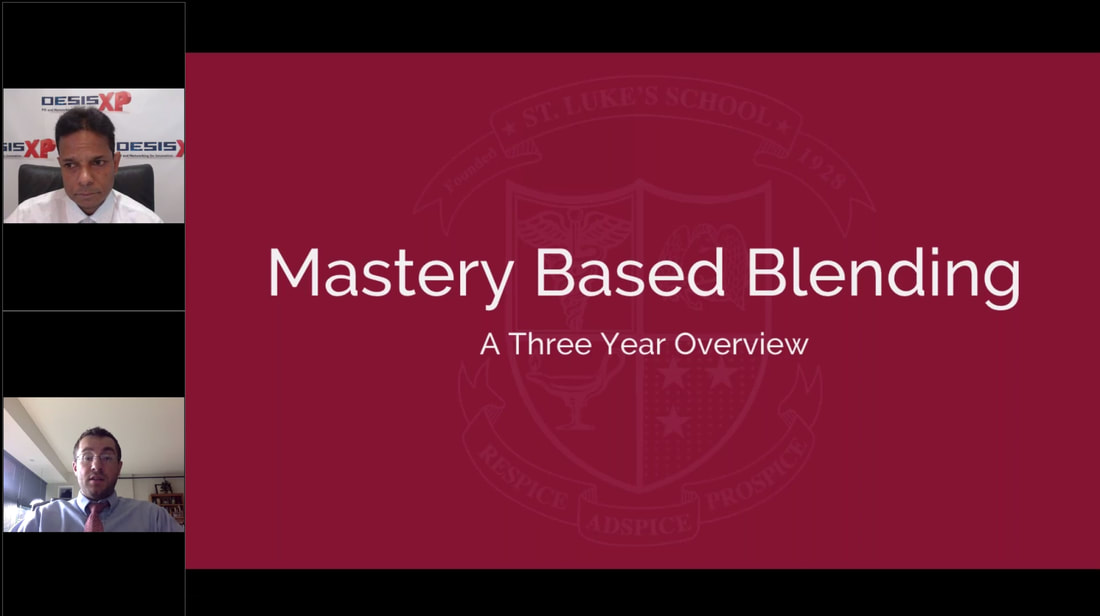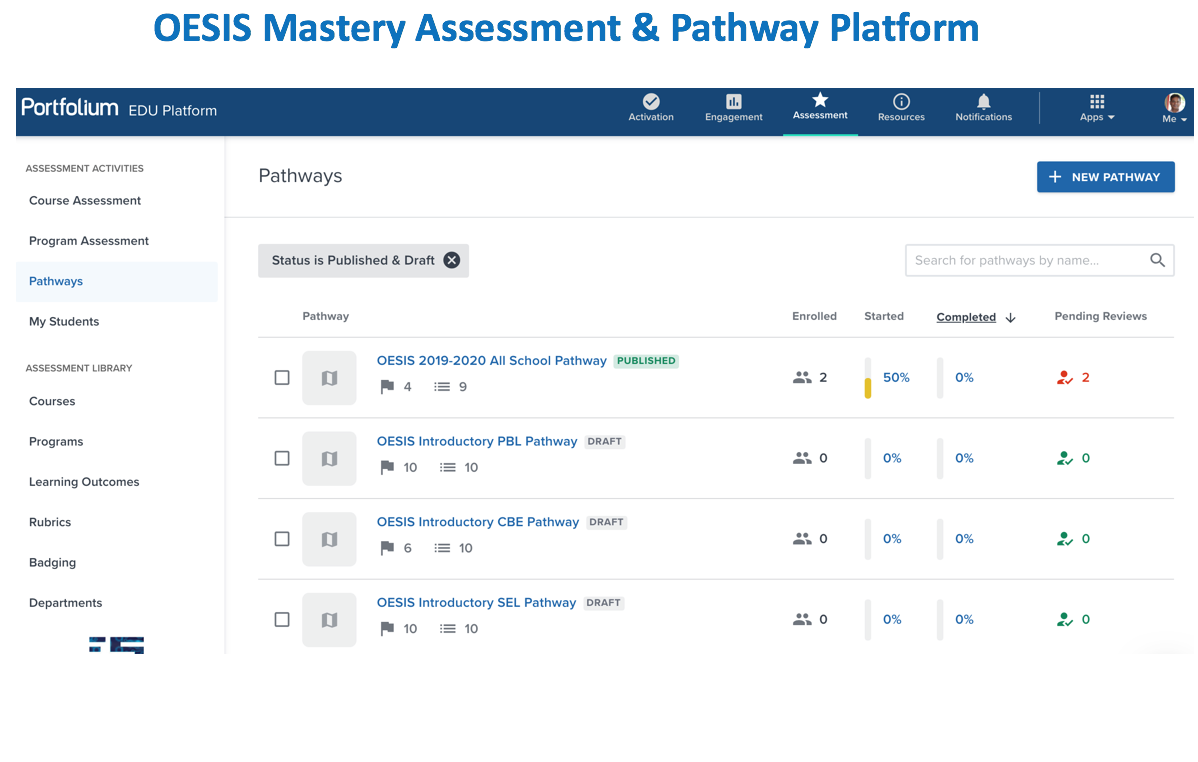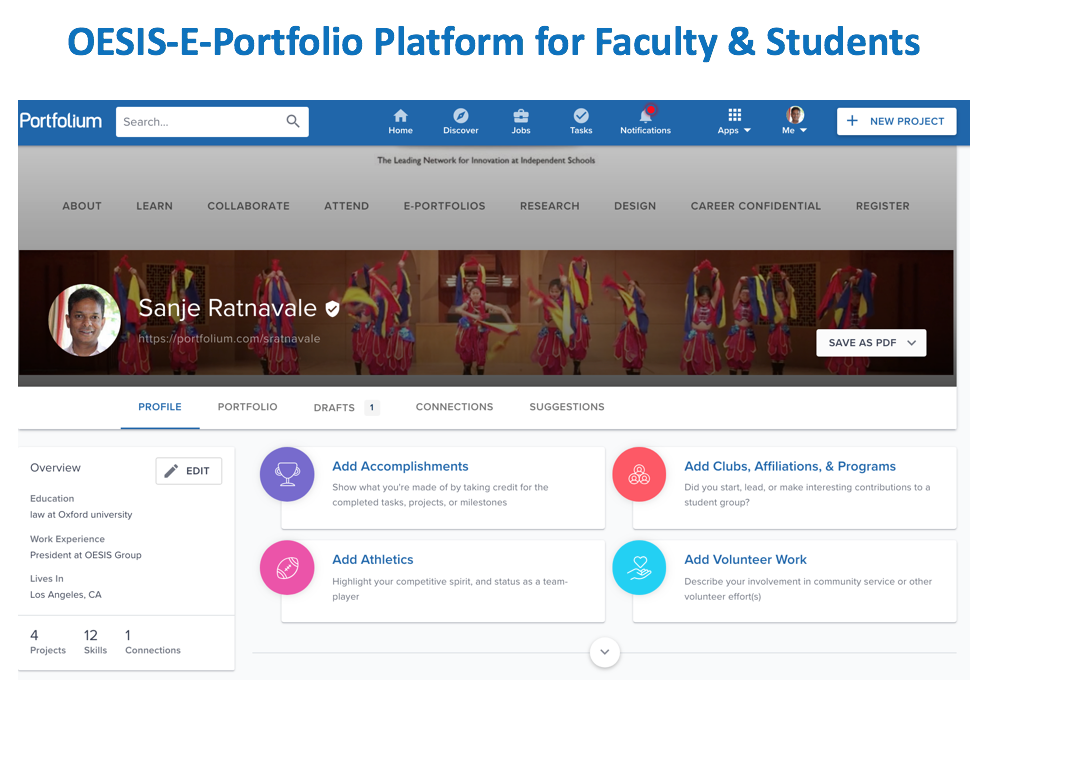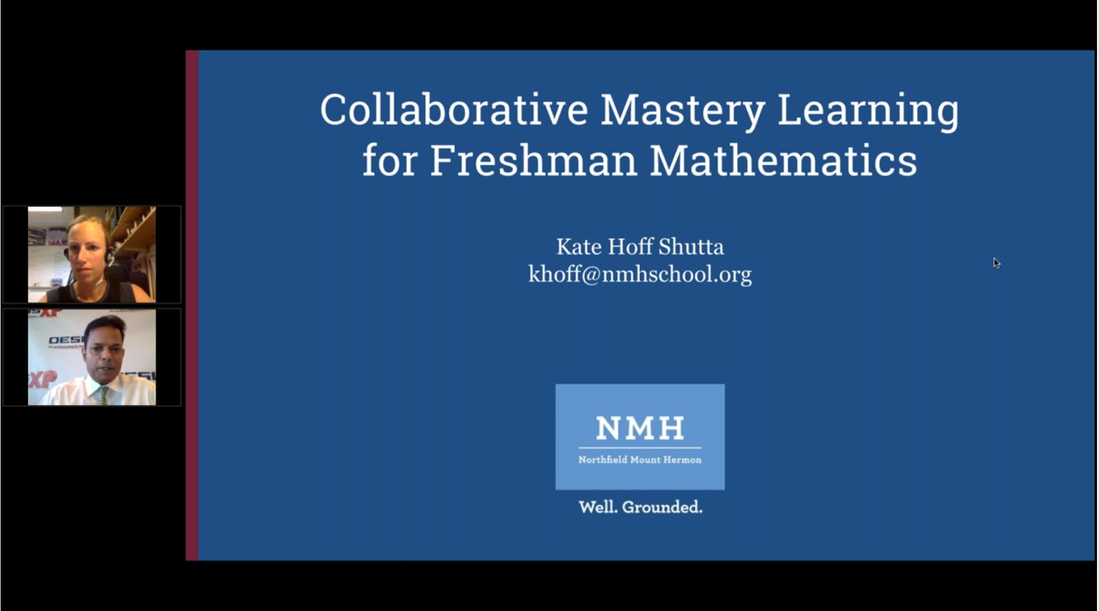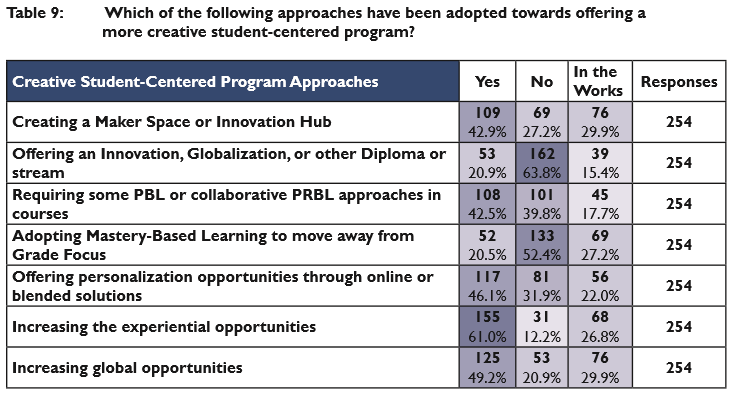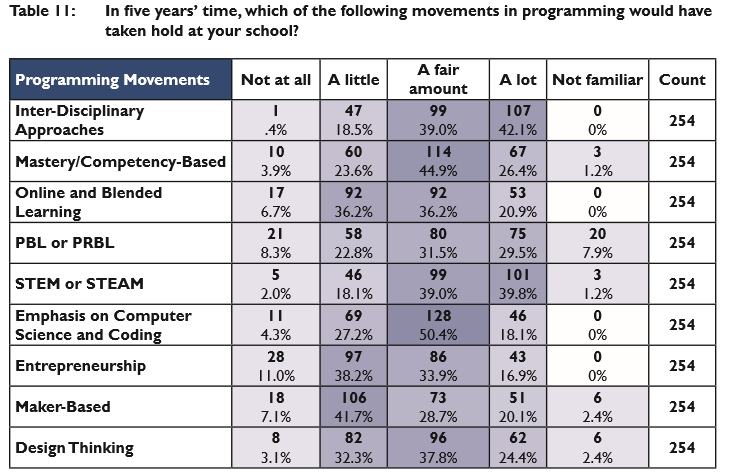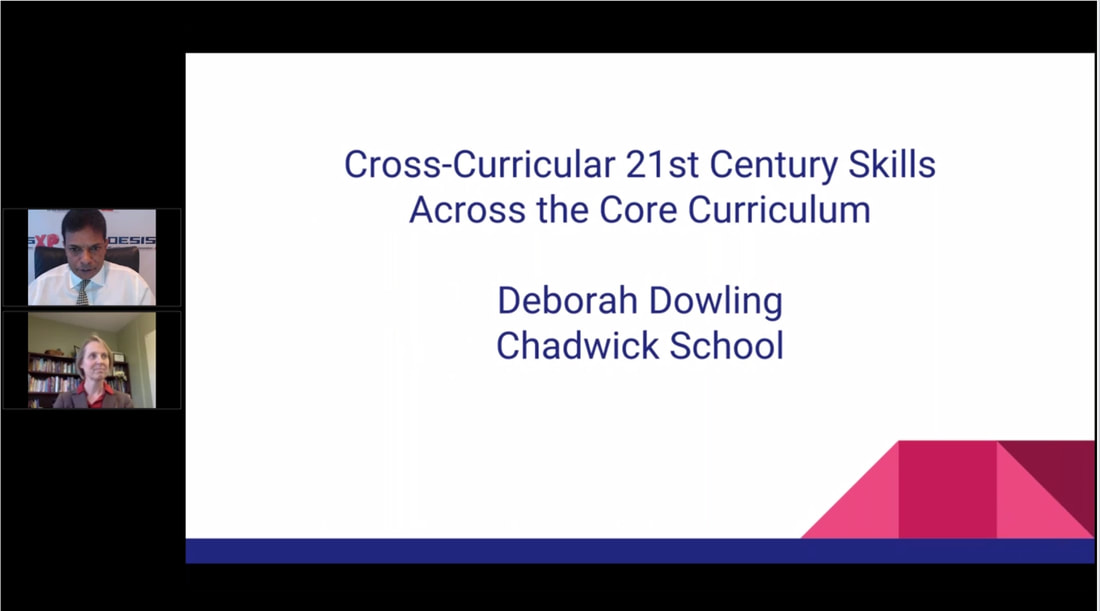|
Mastery as with PBL, comes in many forms and it too is starting to take hold at independent schools across the K-12 spectrum: these variations include standards-based, competency-focused, meta-skills driven, proficiency-based, data-driven, portfolio-based, and GPA dependent/independent to mention a few.
The implications of a school wide approach to competency/mastery based learning are significant. They usually require an in-depth review of the curriculum in order to identify skills and competencies, the formulation of performance indicators for skills or rubrics of progression evidence, they imply the ability for a student to take more control of pacing, they often require greater formative assessment bank development, and they involve educating parents and students on the benefits. And we are seeing differences in emphasis at public schools and private schools. In public schools, the demands of equity and the heterogeneity of the student body places an increased burden on teachers in a competency environment: this often necessitates a lot of data use and team teaching environments in larger class rooms. In independent schools with smaller class sizes this is less of an issue and there are greater time opportunities for personalization.
In the K-8 world we are seeing the introduction of student portfolios and skills-based rubrics without letter grades in independent schools, particularly in middle schools. The use of standards-based grading is starting to become much more popular in secondary schools but with letter grades and a GPA still part of the equation. This is similar to the practice in public schools that still correspond proficiency to GPA bands. Enjoy these videos and learn more. |
These two charts from our recent research show the increasing emphasis on PBL in independent schools. |
- About
- Consulting
- PD Courses
- College Courses
- Intrepid Ed News
-
Conferences
- OESIS Allyship at Dartmouth
- OESIS Boston 2024 Purpose & Engagement in the Age of AI
- OESIS L.A. 2025
- OESIS Boston 2023
- OESIS India Conferences
- OESIS Las Vegas Feb 2023
- OESIS Baltimore 2022
- OESIS Boston 2021
- 1 Day Workshops at Schools
- OESIS Boston Wellness 2020 Oct 8 & 9
- OESIS Student Wellness L.A. 2019
- Register
- OESIS Boston 2019 Oct. 21st
- OESIS BEIJING 2017
- Consult
- Previous Conferences >
- Reports
- Find a Job

